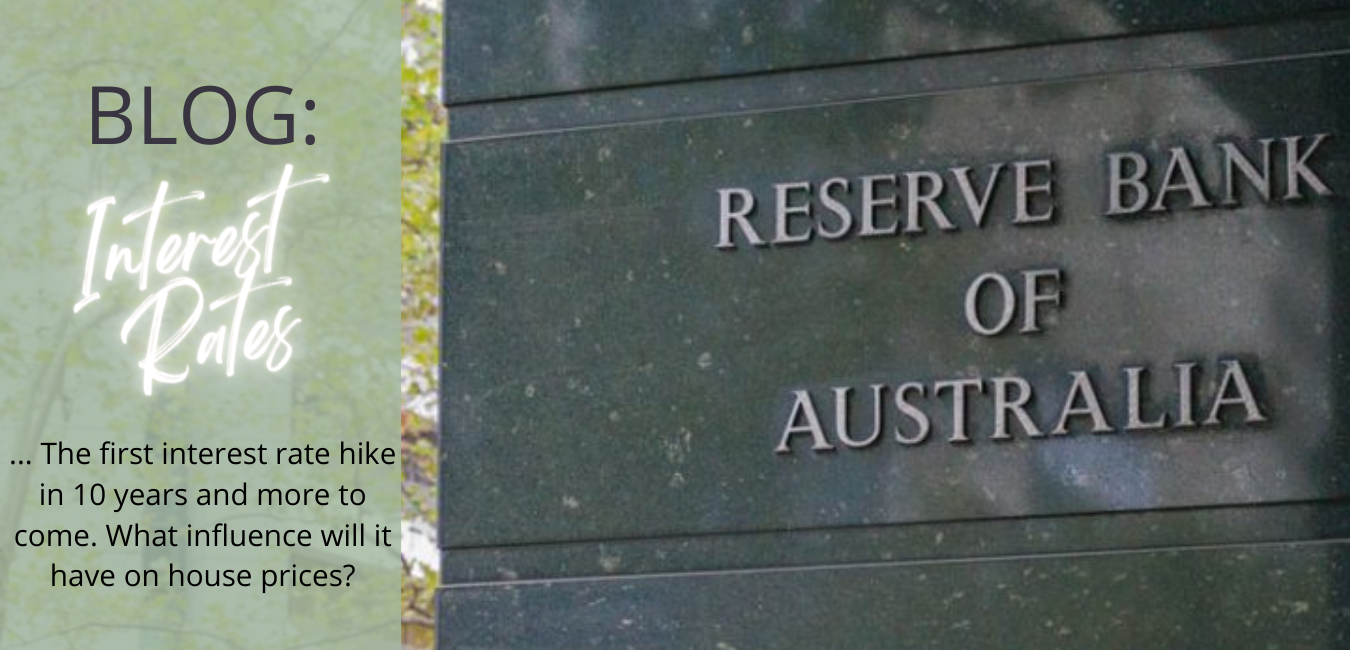
Have you ever wondered what the relationship is between interest rates and property prices? Are higher interest rates bad for property prices? The answer to that question is more complex than a simple yes or no! So, let’s cover a few basics and discuss some possible outcomes.
What dictates the rate, and why do we change them?
In Australia the interest rate is set by The Reserve Bank of Australia (RBA). A federal agency that acts independently of the government of the day. The federal interest rate is one of the tools in the arsenal of policy makers that they can use to manage the economy.
This is why every so often the official interest rate will be changed. In an effort from the central bank to stimulate the economy, they can reduce rates which will make money cheap. This means people are far more likely to spend money on goods and services. While this is a good thing for the economy, one of the drawbacks is that the increased demand for goods, will increase the cost of said goods. This is what we call inflation.
On the other hand, when the central bank increases interest rates money becomes more expensive. Therefore, people are less likely to spend it on frivolous things. Demand on stuff goes down and as a result the price of things reduce, or don’t inflate as much.
How Do Interest Rates Influence Real Estate?
So, it has finally happened, the RBA increased interest rates. At the time of writing this interest rates in Australia are at 0.35%. Still at record lows. Despite this, it feels like there is a general consensus out there in the marketplace that when rates approach a normal level that there is going to be some sort of major event in house prices. With some speculating huge mortgage stress which could lead to fire sales and the bottom falling out of the market. But how likely is this?
While it is true that generally speaking, when interest rates go up, demand for property decreases. This is because buyers have less money to spend on their mortgage repayments, so they either put off buying altogether or look for cheaper properties.
From this point on we can be pretty sure that interest rates are going up and only up. The RBA has already confirmed they will increase rates again this year. The main reason this has to happen is to ensure that inflation does not get out of control.
So, what does all this really mean for real estate prices? This will create a cooling effect on the market. There are no two ways about it. One way or another real estate in Australia cannot continue to appreciate at the same rate it did in 2021. But this begs the question, was this real estate boom really fed by cheap cash or was it fed by huge demand and the cheap cash was just a bit of a help?
Well interest rates have been low for many years now and we haven’t experienced a boom like this. So, one has to accept that it was a bit of fuel to the fire but not the fire itself. And, as a result one would have to accept that when rates begin to rise again the market will slow and maybe even take a few steps back. But as far as a huge market correction is concerned that is pretty unlikely. As interest rates approach more balanced levels again, I believe that is what will happen to the real estate market also. Afterall the Australian real estate market begun slowing slightly at the start of 2022. Months before there was a rate hike.
So what do we at Clark Real Estate see the market doing over the next 12-18 months? Well, most likely it is going to return to a balanced market, with good modest growth but nothing explosive. The fact of the matter is that for interest rates to reach a level where a lot of people are at risk of defaulting, we need rates to be over 3.5%. If this were to happen tomorrow, there would be a serious problem and it would trigger a serious correction. However, if this is to happen slowly over the next say 5 years. One would assume that at such a slow increase, people will be able to adjust their lives and increase earnings so that it will not be a big problem overall.

